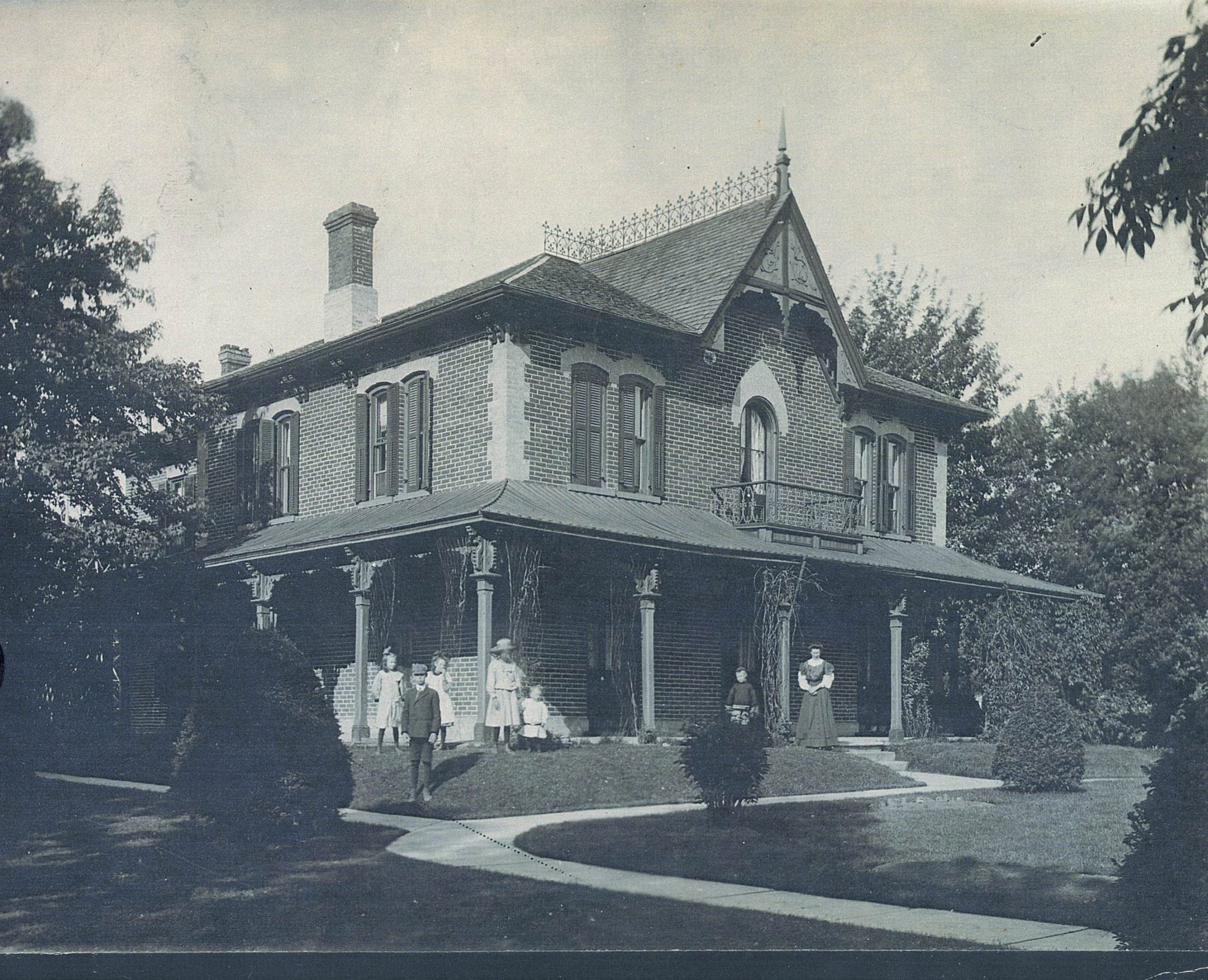FERGUS – The way people say goodbye and honour lost loved ones has changed in the past several decades.
Rob Giddy, director at Graham A. Giddy Funeral Homes, noted that about 100 or more years ago, “There used to be two or three days of visitation before the day of the funeral.”
Most people travelled by horse and buggy. And depending on where they lived, it could take a few days to travel.
Now, most people will “do a couple hours of visitation, which leads right into a celebration of life. Everyone works now. I think people are just trying to make it more convenient.
“People can take one day off, come to the visitation, do the funeral or celebration, and it’s done.”
Rob’s father, Graham Giddy, moved his family to Fergus in 1981 after purchasing two funeral homes – one in Elora, one in Fergus – from Larry Parker.
But in the late 70s and early 80s, Giddy worked at a funeral home in Toronto.
“It was always the exact same thing. Just about every family that came in was presented with the same invoice at the end of it,” Rob recalled.
“Every single one of them would have two days of visitation, a funeral and then whatever church they attended. And they’d usually have the same style of casket.”
Rob and his brother Scott Giddy purchased Graham A. Giddy Funeral Homes from their father almost 10 years ago.
At that time, Rob said cremations took place in about 50% of all funerals. “Now it’s about 90%.”
He also noted, “People are doing celebrations of life. So many people don’t like the word, ‘funeral’.”
Personalizing services
Customizing a service to reflect the personality of our loved ones is common now, and welcomed by Graham A. Giddy Funeral Homes.
“In the last few years, people have been using the favourite music of the person that’s passed away. It really brings back feelings and memories,” said Rob.
“I love that everybody’s different.”
He recalled a family that requested a detour past their old family farm on their way to a cemetery. Another family requested that the obituary instruct everyone to wear jeans to the visitation.
“People embrace that kind of thing. ‘If that is what they wanted, then we’re going to show up in our jeans.’ I think things like that are invaluable,” he said.
He added pre-planning has become more popular too.
“People need to have conversations. It’s just so important that people take the time. If someone’s services are pre-arranged and already down on paper, whether they’re funded or not, the decisions are already made,” he said,
“When you have to sit down for two, or two and a half hours when someone passes away and make all the decisions, it’s tough on some people. But if all the decisions are made, it’s much shorter.”
For Rob, whether services are prepaid or not, the most important thing is having the person’s wishes on paper.
“That’s what it’s all about. It makes it easier for the families,” he said.
Cost savings might account for the rise in cremations, but many people see “great value in scattering ashes in a very important place,” Rob said.
“We also see a lot of people buying cremation jewelry.”
Scattering ashes
With over four decades of experience, Graham A. Giddy Funeral Homes offer the following tips when considering the scattering of a loved one’s ashes.
If scattering on private property, it’s smart to receive written permission from the owner.
Public parks require that you obtain a scattering permit.
There are no regulations regarding ash scattering on uncontrolled public lands; you need to use your own judgment.
You should not scatter ashes within 100 yards of public roads or trails.
The cremation container must be disposed of separately and in an environmentally safe manner.
Scattering ashes in inland waters is governed by the Clean Water Act so it’s important to obtain a permit from the agency that oversees waterways.
Ash scattering at sea must be done at a minimum of three nautical miles from the coastline.
Any flowers or wreaths used in the ash scattering ceremony held at sea must decompose. No plastic flowers or other non-decomposable items should be left behind.
For scattering done at sea, the Environmental Protection Agency requires that you notify the regional office in writing within 30 days after the event.
Paperwork/aftercare
When loved ones pass, often people don’t know how or even what paperwork will need to be dealt with. Graham A. Giddy Funeral Homes offers aftercare – “Almost everyone uses that now,” Rob said.
The cost is minimal and aspects of legal and government requirements (like applying for CPP death benefit, cancelling driver’s licences and passports when someone dies) are dealt with by “someone who knows all the ins and outs.”
The service also includes a new anti-fraud program that recognized by the Canadian government. It protects information like health cards and social insurance.
“Those numbers can never be defrauded in the future,” said Rob.
By pre-arranging, writing down wishes and choosing aftercare, Rob said, “We can make it easier for our loved ones who will be going through a really tough time.”




